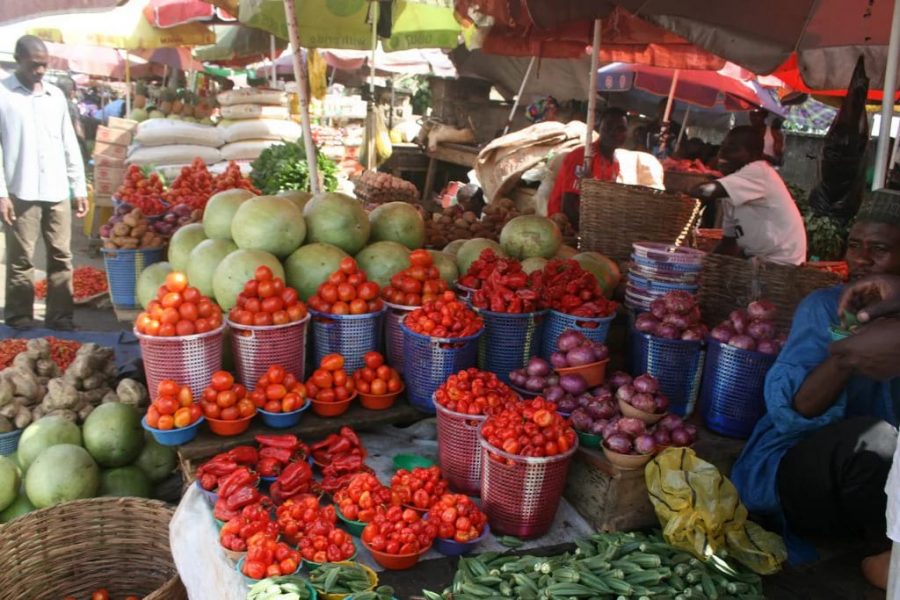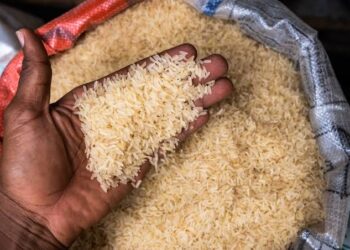Nigeria’s consumer price index, which measures inflation dropped to 11.02% in August 2019. This was revealed in the latest inflation report released by the National Bureau of Statistics (NBS).
According to the NBS report, inflation dropped by 0.06% points year-on-year, lower than the 11.08% recorded in July and 11.22% rate for June 2019.
Similarly, food inflation dropped to 13.17% from 13.39%, while core inflation dropped to 8.68% from 8.80% recorded in the previous month.
The Food Index: In August 2019, food inflation slowed down at 13.17% from 13.39% recorded in the previous month. The average change of the food sub-index over the 12-months average was 13.45%, which was 0.002% lower higher than the average annual rate of change (13.46%) recorded in July 2019.
According to the Bureau, the rise in the food index was caused by increase in prices of oils and fats, meat, bread and cereals, potatoes, yam and other tubers and fish.
On a month-on-month basis, the food sub-index increased by 1.22% in August 2019, down by 0.04% points from 1.26% recorded in July 2019.
[READ MORE: Devaluation relief: Nigeria is set to gain big from Saudi Aramco Attack]
Core Inflation: Nigeria’s core inflation, which proxies all items less farm produce, stood at 8.68% in August 2019 as against 8.80%. On a month-on-month basis, the core inflation sub-index increased by 0.67% from 0.77% recorded in July.
NBS revealed that the highest increases were recorded in prices of cleaning, repair and hire of clothing, repair of household appliances, hospital services, glassware, tableware and household utensils, passenger transport by air and repair and hire of footwear.
Rural and Urban Inflation: The report shows that urban inflation rose to 11.48% from 11.43% recorded in July, while the rural inflation rate increased by 10.61% from 10.64%. On a month-on-month basis, the urban index rose by 1.10% in June 2019, up by 0.05point.
On a month-on-month basis, the urban index rose by 1.04% in August 2019, down by 0.03 from 1.07% recorded in July 2019, while the rural index also rose by 0.93% in August 2019, down by 0.03 points from the rate recorded in July 2019 (0.96%).
Insights: According to the latest inflation report, all major indices slowed except urban inflation year on year.
- According to the NBS, the drop in inflation in the Nigerian economy continued in August 2019 despite several pronouncements regarding restrictions on the import of some food items, minimum wage and the recent border closure.
- However, the Bureau noted in its report that the border was only closed on 20th August 2019 with only 11 days of 31days, hence, the significant impact of the border closure has not yet reflected either way on prices.
- The latest inflation report implies a slow rise in the prices of goods. The drop does not necessarily mean market prices of goods have dropped but price items only witnessed a slow rise.
- While the inflation rate for August slowed down, the effect of border closure and other recent policies may affect inflation outlook in the coming months. Experts have opined that the border closure might drive up inflation in no distant time.
- Meanwhile, the NBS noted that the harvest season, existing weak consumer demand and their natural effect to slow down food and other prices are various reasons that determine the direction of inflation.
On the side-line, key economic agents respond differently to movements in an important indicator like inflation. Specifically, a slow rise in inflation can largely improve investors’ confidence due to the growth prospect it suggests.
- The latest slowed down in inflation suggests potential improvement in business activities, as consumption in the economy may rise following a drop in inflation. Hence, companies’ revenue may equally improve as aggregate demand inches up.
- To individuals, this means an improvement in the purchasing power of the consumers to buy goods and services. That is, the ability to buy more with the same income level.
- Lastly, for policymakers, the latest drop in inflation rate reinforces recent policy measures that are targeted at driving Nigeria’s inflation rate to a single digit.
[READ ALSO: U.S returns to Nigerian Oil, imports N349 billion crude oil in three months]

















.gif)






